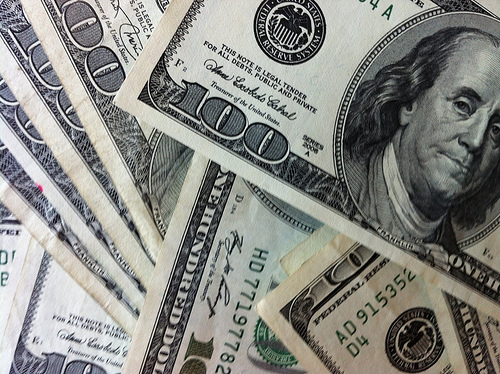We all, at one time or another, consider the best way to make money. We do not have to be having a mid-life crisis.
In a perfect world, we would all have enough money to do everything we wanted. We could dine out every night, take exotic vacations on a whim, live in palatial homes, and drive fancy sports cars. In an ideal world, money would be in endless supply and we would have no financial concerns. Such a scenario is inherently flawed on many levels. If everyone had an infinite money supply, money would have no value. We would not be able to use it at all. One of the key principles of economics is scarcity.
The less there is of a financial instrument, store of value, or medium of exchange, the more bargaining power you have when you want to use it. There is a notion that the federal government can simply print as much money as it needs to take care of the federal debt, or money shortages. The problem with printing money in a haphazard fashion is that it gives rise to inflationary pressures. Think of it this way: Perhaps you have a farm that needs water for the crops to grow. A steady and sustained stream of water will help your crops to flourish. If you introduce a gushing torrent of water, you will destroy everything.
Making Money Made Easy: A Few Simple Rules
- Money must be invested for growth purposes
- Money must be saved to pursue long-term goals
- Money is a scarce resource that must be well-managed
The eponymous money principle is central to our success in life. It is one of the core tenets of a life well-lived since poor money management is a surefire recipe for disaster. It all begins with passive and active income streams. A percentage of your disposable income should always be set aside for investment purposes. Investment is part of a long-term growth strategy designed to yield a favourable ROI. There is no blanket strategy for the best investment vehicle, suffice it to say that investments are all associated with a degree of risk. Whether you invest in indices, commodities, stocks, Forex, or cryptocurrency is secondary to the fact that you are setting money aside today in the hope that it can grow in the future.
Leading trading brokerage, Wilkins Finance listed a few notable investment trends over the years:
- When Bitcoin appeared on the scene in 2008, it was trading at mere fractions of a penny. By December 2017, Bitcoin prices hit $20,000 per unit. No other financial instrument has enjoyed such rapid and unprecedented growth. However, the bubble has slowly deflated, and Bitcoin is now trading in the $7,000 – $8,000 range.
- Gold is one of the most interesting commodities to invest in. It is known as a financial hedge against uncertainty and volatility. When stock markets start to flounder, investors tend to shift resources to gold. Gold prospers during times of geopolitical uncertainty. Gold is currently trading around $1,300 per ounce and has a 16-year return of 302.51%.
- The US dollar (USD) is the world’s premier reserve currency. For the year to date, the US dollar index indicates that the greenback is up 1.53% against a basket of currencies (SEK, GBP, EUR, JPY, CAD, and CHF). This is the broadest possible measure of the US dollar’s performance against major currencies, with the strongest weighting assigned to the EUR at 57.6%, the JPY at 13.6%, and the GBP at 11.9%. The 52-week trading range of the US dollar index is 88.25 on the low end and 97.87 on the high-end. The index is currently trading at 93.44.
The interrelatedness of the US dollar and commodity prices needs to be borne in mind. Since commodities are dollar-denominated, a surging USD is often associated with a decreased demand for commodities. The reason being: foreign buyers of commodities must pay more of their currency for every dollar equivalent of the commodity. Based on demand/supply, as price increases, demand decreases. These investment trends are part of the economic cycle, and cycles repeat.
An increasing number of investors are now turning to alternative investment vehicles and trading options such as derivatives trading (CFDs are contracts for difference) to generate returns on their investments. A CFD allows you to hedge against volatility in traditional markets by taking an opposite position and using leverage. The pathway to success in finance is the ability to diversify your portfolio into strongly performing components. It is important to mix things up to guard against downturns that occur. Cryptocurrency, CFDs, ETFs, mutual funds, individual stocks, and other options all have a place in a modern investment portfolio. Now, cross your fingers and hope that Lady Luck pays you visit!
photo credit: Philip Taylor PT 100 Dollar Bills via photopin (license)
